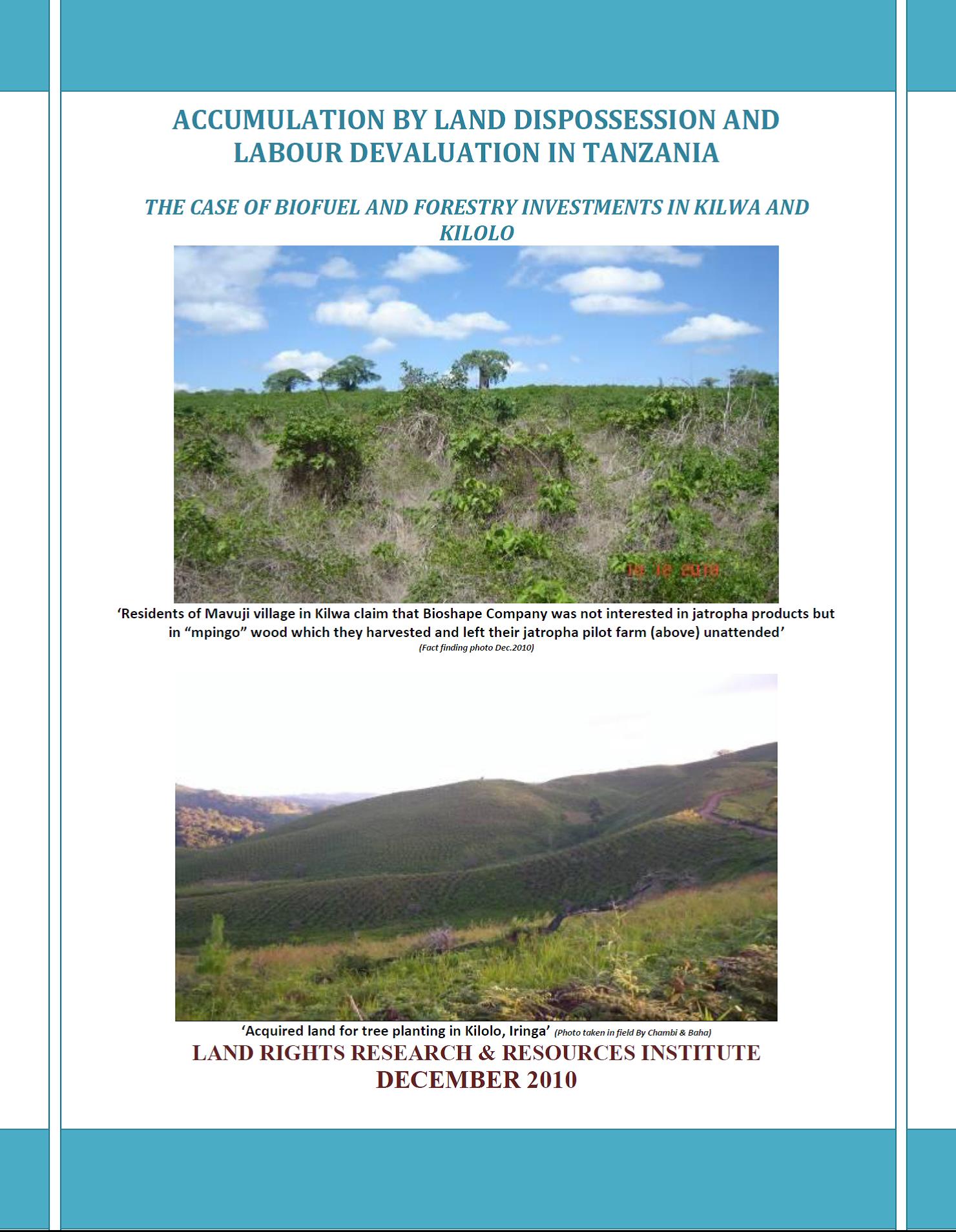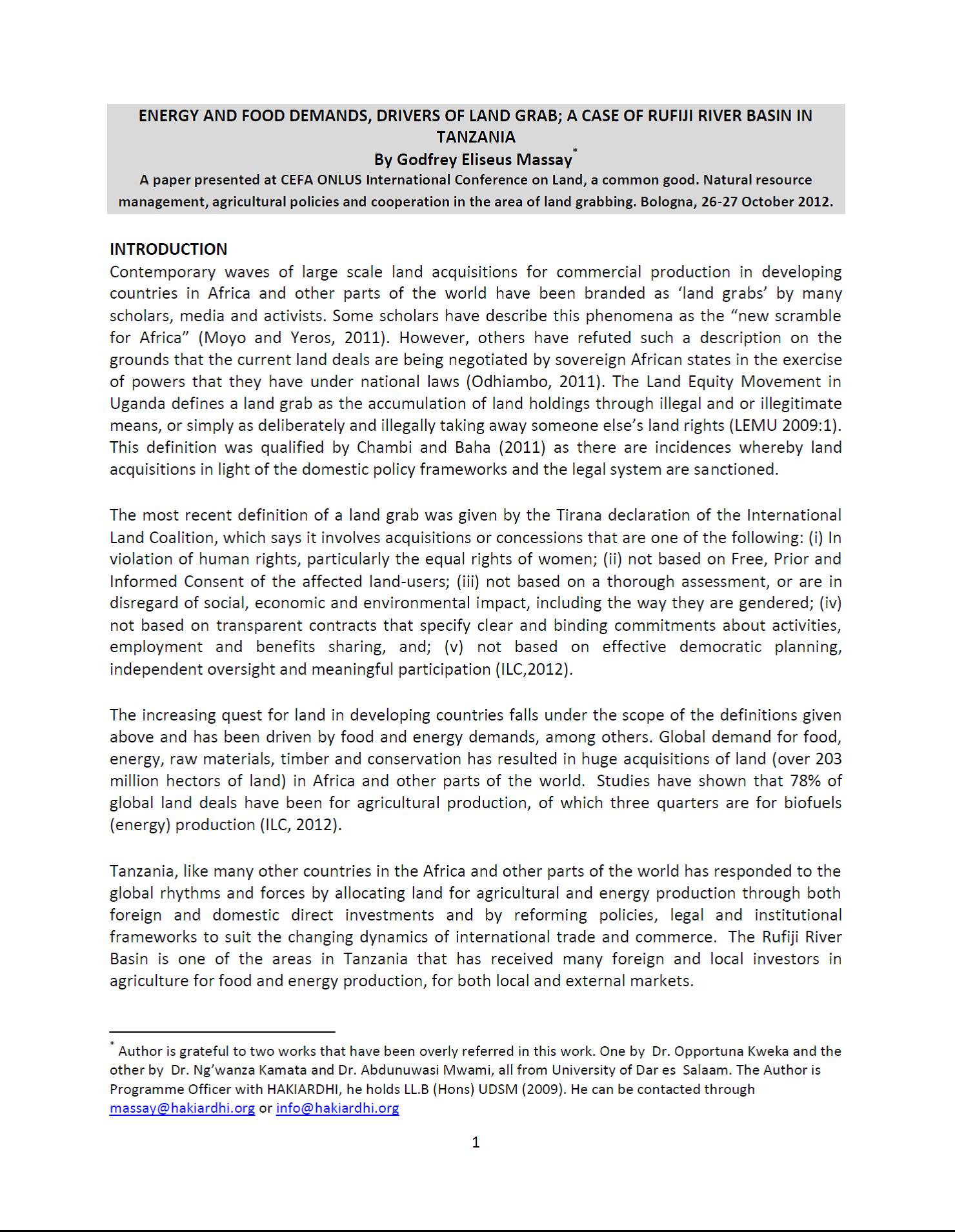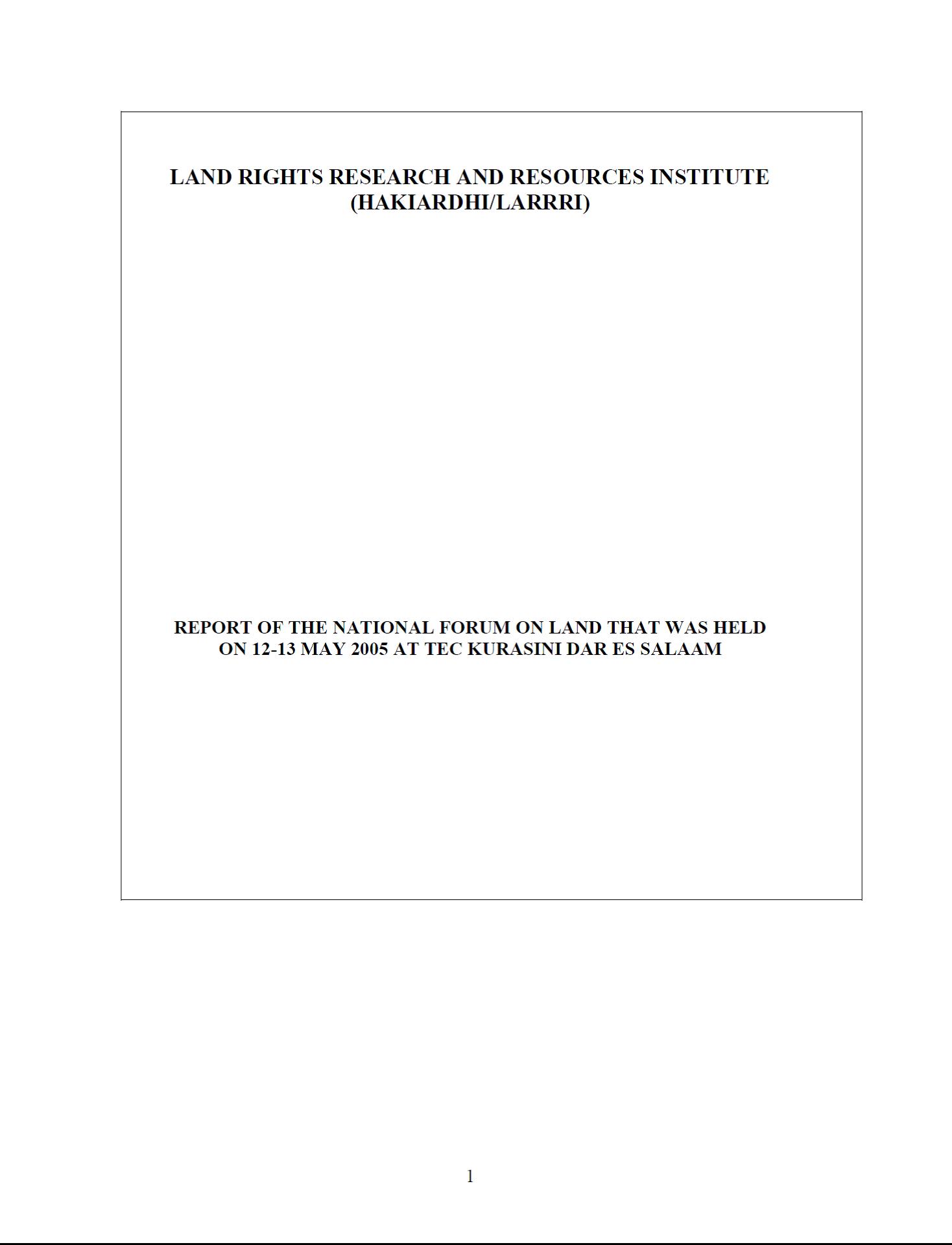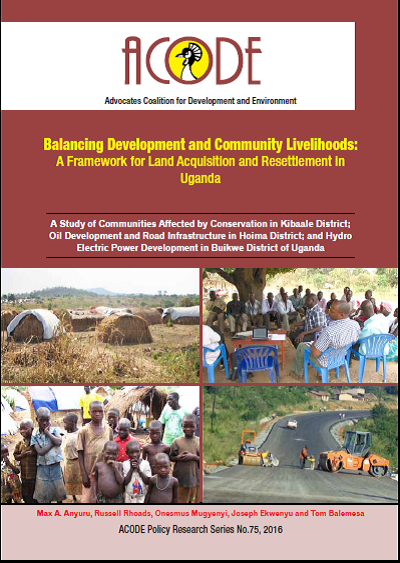Accumulation by Land Dispossession and Labour Devaluation in Tanzania
New commercial pressures on land and its impact on small producers is one of the major issues being discussed in both national and international arenas. As foreign states and corporate entities continue to exert pressures on African countries to acquire land for various investment purposes, Tanzania is not exempted. The country is stereotypically perceived as having large underutilized, or rather unexploited, fertile land – the so-called ‗virgin land‘.







